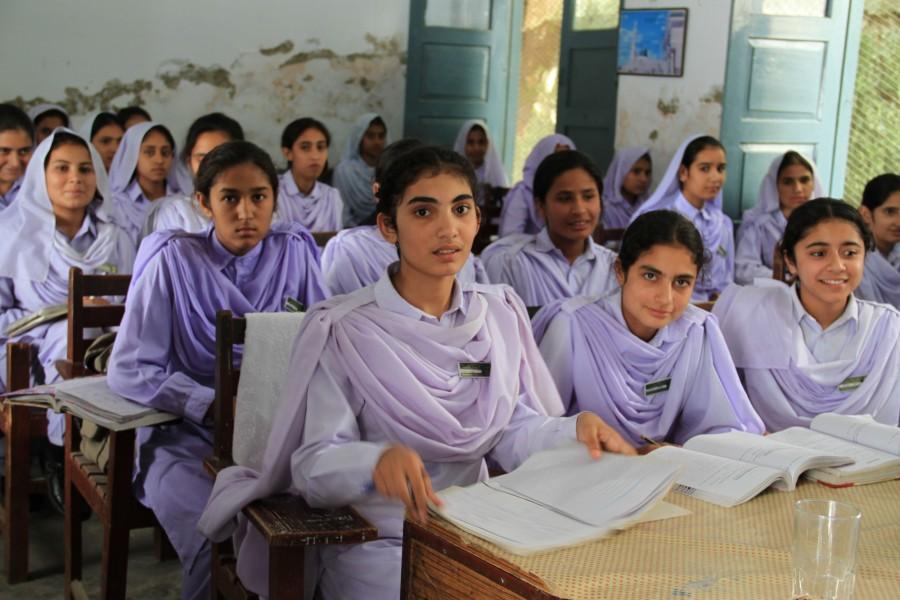Interview with UNFPA director Junko Sazaki
On Tuesday, February 16, the Girls Club invited Junko Sazaki, the United Nations Population Fund (UNPFA) Tokyo Office Director, to speak to students and teachers about issues including population, women’s empowerment, and gender equality. “The International” was lucky enough to interview her about her views on gender equality and the work she does at the UN.
What inspired you to work for the UN?
As a child I always liked to think big and globally and I liked meeting new people and learning about different cultures. When I went to the US for graduate school, I met many people from developing countries. I started to talk to them and discovered many interesting values. I started to get involved in development issues including women’s empowerment and gender equality.
Why did you decide to focus on women empowerment and reproductive rights?
Being brought up in Japan, I was always questioned about gender issues, and I was very much aware of this problem. When I graduated from university, I found out that boys get professional careers, and girls become secretaries and assistants even though we graduated from the same universities and same departments. I was so shocked. I thought that we needed to change Japan, which is difficult. I thought that through the UN I can do some work to help this problem. My work in Japan now is more focused on advocacy and fundraising, and I’ve seen a change in Japan, especially with womenomics. I’m very happy that I’ve worked with the UN because I can bring back this knowledge to Japan.
Why do you think it’s important for men to be involved in the discussion of women’s rights?
It is very crucial. If we want to change, in terms of gender issues, if men are not our partners we cannot make a difference. If you start a small group, they will say, “Oh, she’s a feminist. She’s only talking about women.” Who makes the decisions in Japan and developing countries? Men. We need to involve these male leaders, and make sure they are our partners and send the message that women are equals and why it’s important that women get health care and education.
In your experience, how do the local people in developing countries react or feel about UN presence? For example, does the culture of the local people impact their views on family planning and how do you deal with this?
They always look at us and say, “You have a different culture. You don’t understand us.” But culture changes, and we at the UN look at human rights. Human rights goes higher than culture. But of course we have to make human rights and culture work in a harmonious way. Look at family planning. In Japan, we did not have family planning 100 years ago. In Latin America and some Middle East countries, they look at family planning and think that it is dangerous that women are controlling their own fertility, and worry about the possible side effects. But family planning is very important. Look at the reality: in poor countries, women are having more children than they can be responsible for, and as a result the mothers have a higher probability of dying due to complications in the pregnancy or birth. Many children are born poor and cannot go to school. This is generational poverty. So, that is why sexual education is important. For example, we have programs in schools in Latin America to teach girls sexual education to prevent them from getting pregnant at a young age. These girls should continue schooling, as human rights say that “every girl has a right to education.” If they decide that they should have access to contraception, even if they are not married, they should have that right.
What advice do you have for ISSH students who are interested in studying International Relations at University or working for the UN?
There are many jobs available at the UN, you don’t only have to study International Relations. I think that you should explore what you like and what you believe. It is easier to build on the strengths that you have. For me, I loved statistics and math, which is why I chose to study demography and international relations. It is important to dedicate your life to the cause that you believe in.







































